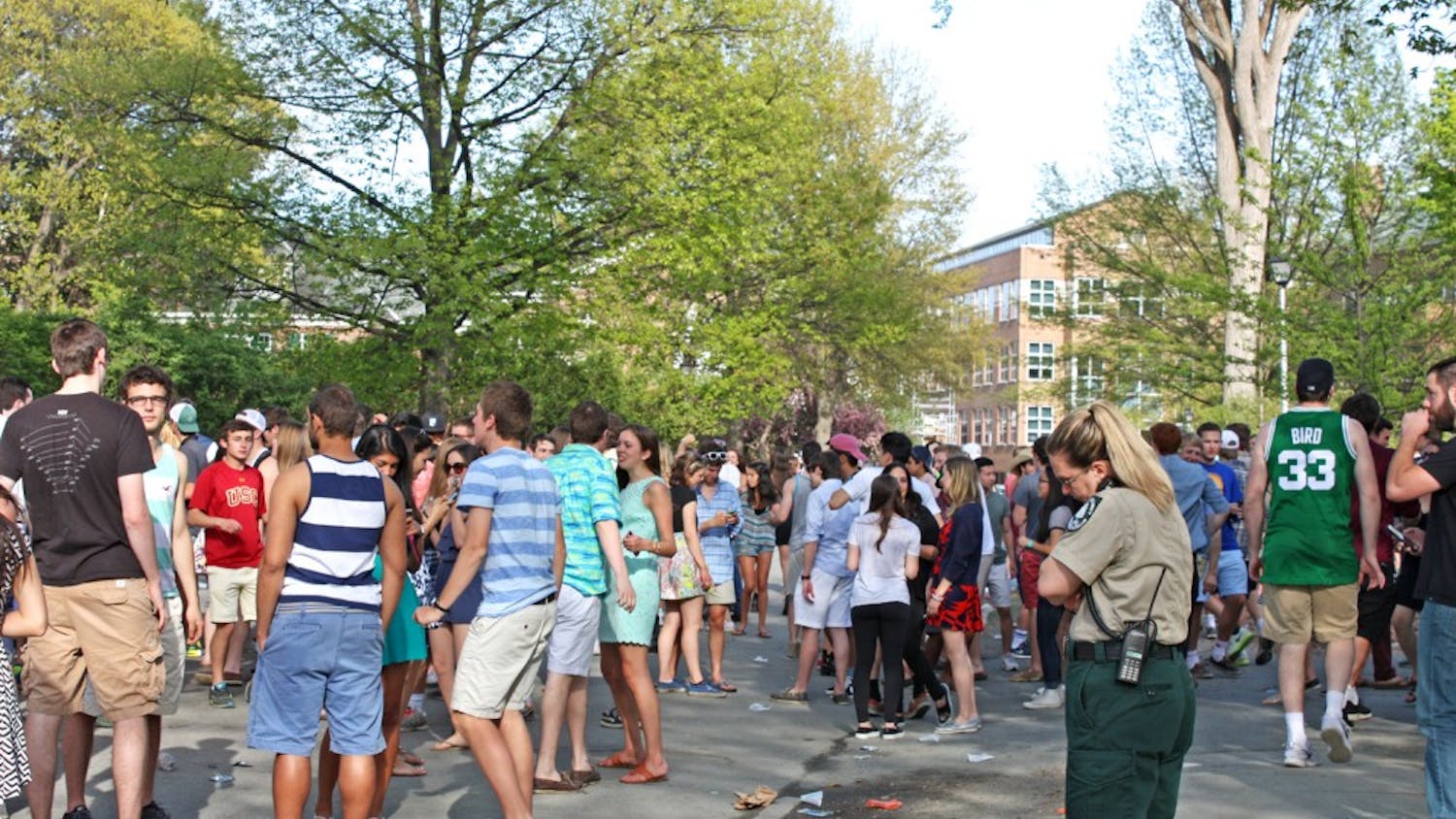"As more students call for help, more of the cases are handled as medical matters, rather than disciplinary matters," Director of Undergraduate Judicial Affairs April Thompson said. "We continue to be thrilled about the increase in Good Samaritan calls because it means that people aren't subject to disciplinary action if they take part in an educational program or counseling."
When one student calls Safety and Security for help with an intoxicated student, the Good Samaritan policy grants both the provider of the alcohol and the intoxicated student impunity from certain alcohol policy violations.
The College recorded 187 violations of alcohol policy leading to disciplinary sanction last year, along with 100 Good Samaritan cases. If the four-year trend remains constant, there will be more Good Samaritan cases than violations resulting in sanction by the fall of 2008. This trend correlates with significant changes to the Good Samaritan policy made in 2005, when the College removed language limiting the number of Good Samaritan calls for a specific student and added education and counseling as alternatives to disciplinary action.
In total, there were 48 more disciplinary cases in 2006-2007 than in the previous reporting year. There were 427 cases in 2005-2006. This compares with 666 for 2004-2005, 588 for 2003-2004, 588 for 2002-2003, 490 for 2001-2002 and 526 for 2000-2001.
"[The report] is not required by law, but it goes to our commitment of informing students about the process," Thompson explained.
With respect to cases involving academic integrity, there were a total of 22 cases in 2006-2007 as opposed to 28, 25 and 20, respectively, in the previous three years.
As is consistent with previous years, in approximately 10 percent of the cases heard by the Committee on Standards or deans, the individual involved was found not responsible for the offense.
"I think it often reflects on the nature of the student's conversion with a dean or others," Thompson said. "We often have little information " I think a lot of that could be resolved at the front end if students gave Safety and Security the total picture at the moment, but not all students feel comfortable doing that, which is fine."
The Office of Undergraduate Judicial Affairs also included in its report a summary of those cases heard by the Organizational Adjudication Committee. Of the 27 cases referred to the OAC, 23 involved alcohol violations. Others involved drugs or drug paraphernalia. Most notably, Kappa Kappa Gamma sorority was sanctioned following an incident at an Enfield roller-skating facility in October 2006. Three of the sorority's new members were hospitalized, and Kappa was accused of violating alcohol policy and the terms of its ongoing probation, along with threatening or causing harm to others. The OAC continued Kappa's probation, combining it with alcohol education and other counseling measures.
The release of these statistics coincided with the publication of Safety and Security's Annual Security Report. The report, covering the period from January to December of 2006, is released in compliance with the Clery Act. The Act requires all institutions of higher learning that receive federal funding to disclose statistics on crime occurring on or near their campuses. The Clery Act was signed into law in 1990 following the 1986 rape and murder of Jeanne Clery, a Lehigh University student. Unlike the Report to the Community of the Dartmouth Undergraduate Disciplinary System, the Security Report focuses specifically on incidents of criminal activity, rather than violations of College policy.
Crime statistics in most categories remained essentially unchanged, with a total of 13 forcible sexual offenses. Separately, there were 19 drug law violations referred to the College for disciplinary action, among other crimes.
Of note, 89 percent of the 46 on-campus properties burglarized last year were unlocked at the time of the incident.
The liquor law violations referred for College disciplinary action was the one category in which the number of cases decreased drastically, from 226 in 2005 to 152 in 2006.
"We think people are becoming aware of the law, the liquor law," College Proctor and Director of Safety and Security Harry Kinne, said, referring to the legal concept in New Hampshire that consumption of alcohol qualifies as possession.
The 2006 national averages for these statistics are not yet available from the federal Department of Education.




